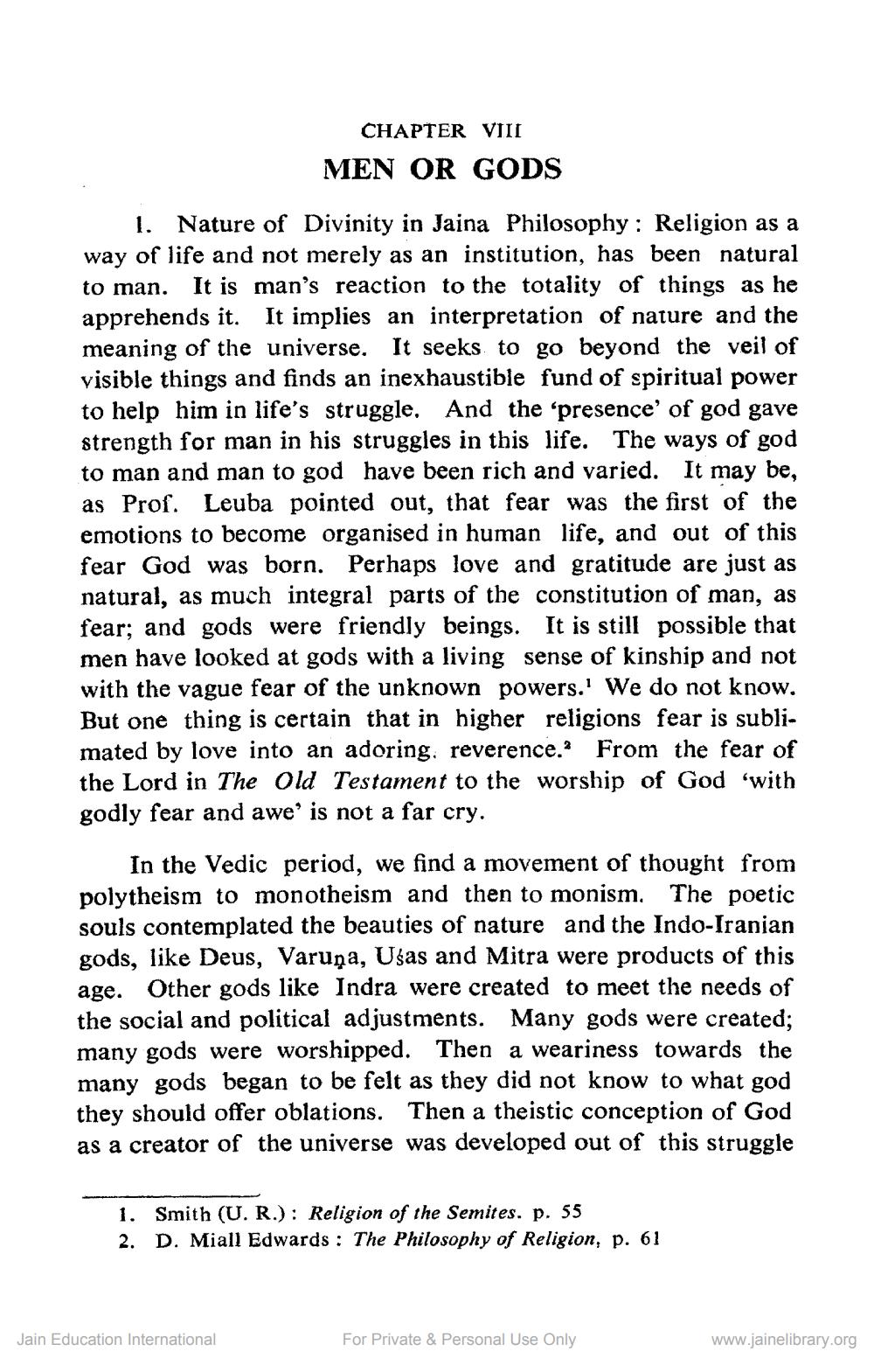________________
CHAPTER VIII MEN OR GODS
1. Nature of Divinity in Jaina Philosophy : Religion as a way of life and not merely as an institution, has been natural to man. It is man's reaction to the totality of things as he apprehends it. It implies an interpretation of nature and the meaning of the universe. It seeks to go beyond the veil of visible things and finds an inexhaustible fund of spiritual power to help him in life's struggle. And the 'presence' of god gave strength for man in his struggles in this life. The ways of god to man and man to god have been rich and varied. It may be, as Prof. Leuba pointed out, that fear was the first of the emotions to become organised in human life, and out of this fear God was born. Perhaps love and gratitude are just as natural, as much integral parts of the constitution of man, as fear; and gods were friendly beings. It is still possible that men have looked at gods with a living sense of kinship and not with the vague fear of the unknown powers.' We do not know. But one thing is certain that in higher religions fear is sublimated by love into an adoring. reverence. From the fear of the Lord in The Old Testament to the worship of God 'with godly fear and awe' is not a far cry.
In the Vedic period, we find a movement of thought from polytheism to monotheism and then to monism. The poetic souls contemplated the beauties of nature and the Indo-Iranian gods, like Deus, Varuņa, Usas and Mitra were products of this age. Other gods like Indra were created to meet the needs of the social and political adjustments. Many gods were created; many gods were worshipped. Then a weariness towards the many gods began to be felt as they did not know to what god they should offer oblations. Then a theistic conception of God as a creator of the universe was developed out of this struggle
1. Smith (U.R.): Religion of the Semites. p. 55 2. D. Miall Edwards : The Philosophy of Religion, p. 61
Jain Education International
For Private & Personal Use Only
www.jainelibrary.org




